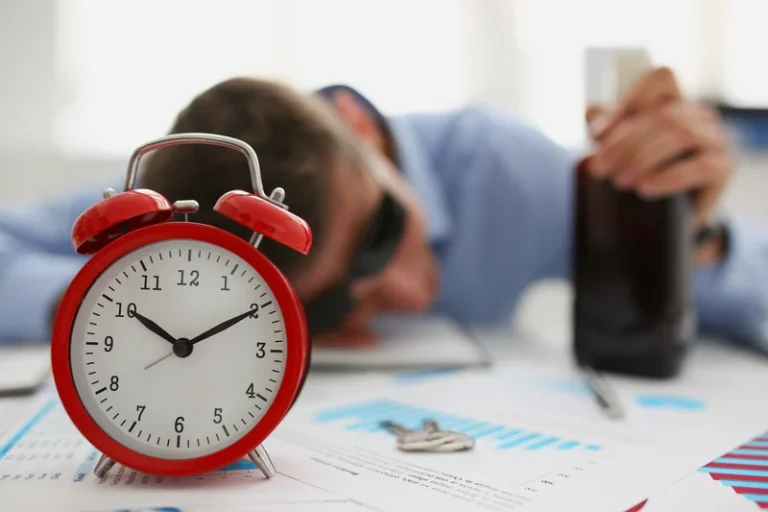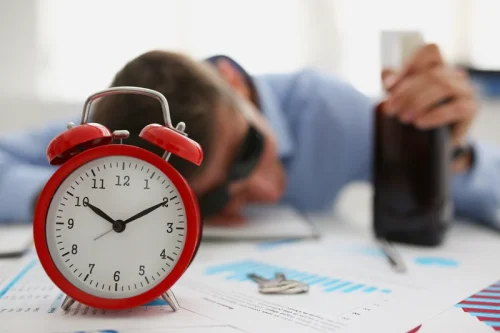Dry Drunk Syndrome: What It Is, Symptoms and Treatment 28 agosto, 2024 – Posted in: Sober living

Melissa is a visionary and empathetic leader in the field of peer support and recovery. Armed with credentials as a Registered Peer Supervisor, Certified Peer Recovery Specialist, and Alcohol and Drug Trainee she has earned her place as a guiding light for individuals seeking hope and solace. Melissa’s illustrious journey includes a Bachelor’s degree from the University of Maryland, College Park, while she currently works diligently towards her Master of Social Work (MSW) degree at Walden University. Melissa’s personal experiences with addiction and mental health struggles instilled within her a profound passion for supporting others on their recovery journey. Her unwavering commitment to peer support, coupled with her own lived experience, fuels her drive to make a meaningful impact in the lives of those facing similar challenges. In addition to the title of Licensed Clinical Professional Counselor, Kevin is also licensed by the state of Maryland as a Clinical Drug and Alcohol Counselor.
- Then, the state of being addicted to substances continued to perpetuate your depression.
- With her passion and drive to bring success to our residential program, Erin is excited for the opportunity to lead our team in Buckeystown as the Program Director.
- Support groups can also be helpful because you guys can share helpful coping strategies.
- Her experience in a variety of settings, from leadership in a hospital setting to private practice, affords Cheryl a well-rounded skillset ready to render top-notch care and serve the needs of our diverse community.
Supporting Loved Ones with Substance Use or Mental Health Disorders During the Holidays
- They have to learn how to face difficult emotions, without substances, and may even have trouble identifying what their own emotions even are.
- Making the necessary environmental, behavioral, emotional, and social changes in your life will help you maintain your sobriety even more than simply quitting alcohol.
- You reach for a drink wherever you have a terrible moment, and all is better.
- This almost seems like a contradiction in terms, so how do we explain it.
As an integral part of The Freedom Center, Melissa’s multifaceted experience shines through her past work in various capacities. Her presence on this team highlights her dedication to crisis intervention and her ability to provide critical support during vulnerable times. Prior to her role in crisis intervention, Melissa worked extensively in the substance abuse and dual diagnoses treatment field.

Supporting a loved one
- Erin is grateful to be a part of the dedicated, caring and compassionate Freedom Center Team.
- It’s important to be aware that a contributing factor towards dry drunk syndrome may be a co-occurring disorder.
- With years of experience tasting and evaluating various beers, I love to share my opinions and insights with others and I am always eager to engage in lively discussions about my favorite beverage.
- Although your use took a life of its own, it likely started off as a means of dealing with difficult emotions, trauma, or was a means of escape.
- When you come up against difficult emotions or negative self-talk, remember that recovery isn’t linear and that it’s going to be an up and down process.
- Max began his career in the addiction field working as a group facilitator and teacher, developing and delivering a successful faith-based curriculum in a long-term residential treatment setting.
- For over 20 years Dr. Umhau was a senior clinical investigator at the National Institute on Alcohol Abuse and Alcoholism of the National Institutes of Health (NIH).
Keep in mind that these hobbies might not feel quite as enjoyable during the early stages of recovery. If some time goes by and you still feel the same way, you can always give a different coping technique a try or explore a new hobby. It’s not always easy to open up about alcohol use and recovery, especially to people who don’t have any experience with it, but it’s a crucial part of the process. Drugs and alcohol provide a Sober living house sense of (temporary) relief for people who are in pain emotionally. They provide a means of escape for people who are struggling to get through their day or who have painful memories they are trying to forget.
What Is Wet Brain and What Are the Symptoms?
In that role, James audited a national trade association with over 1,300 dry drunk syndrome member companies that sell health insurance coverage to more than 200 million Americans. He also conducted official financial examinations of various non-profit organizations and for-profit corporations. This experience allowed him to learn the inner workings of almost any aspect of a company. It also taught him the value of building meaningful relationships with clients and having a strong ethical framework. Client wellness, especially when dealing with the delicacy of addictions, remains a priority that drives his full engagement and committed nature.

Addiction Treatment Programs
The therapy that coincides with detox is essential because it helps you deal with what made you depend on that crutch, but the work is twice as hard. Let’s review some signs, distinct indications, and symptoms that you’re dealing with dry drunk syndrome. By Buddy TBuddy T is a writer and founding member of the Online Al-Anon Outreach Committee with decades of experience writing about alcoholism. Because he is a member of a support group that stresses the importance of anonymity at the public level, he does not use his photograph or his real name on this website. Take up gardening, start collecting an item you’re truly interested in or fascinated by, learn how to build things and focus on the creative project. The goal is to fill the time you once spent drinking with activities that are enjoyable and engrossing.
Having compassion and acceptance words yourself will make the early stages of recovery much more bearable easier to get through. As the Medical Director, Mark works with the staff to coordinate the appropriate level of care for each individual client. He works directly with the clients on management of medical issues both related to and separate from their addiction, ensuring comprehensive health care plans that ensure our clients’ chances at recovery. What he has found to be most rewarding about working in the addictions treatment field is being able to help suffering addicts and alcoholics to realize their fullest potential. Shannon is a certified A.D.T. who has worked in different capacities at several rehabilitation centers in the state of Maryland.
What are the symptoms?
Discover the signs that you may be “white-knuckling” your way through your own recovery. Finally, learn how to overcome this stage to experience lasting recovery. Mary is an experienced Client Care Manager with 20+ years in customer service.

Clinical Director

Michael’s goal is to connect current client and alumni with resources to strengthen their life in recovery. An essential part of your recovery is being able to connect with a support circle. Talking to loved ones about your alcohol use and recovery process can help take some stress off your shoulders. Others will be able to support you during stressful times when you may feel triggered to drink again.
Clinical Supervisor – Primary Therapist
Her experience in behavioral health training, program development, and organizational leadership lead her to pursue a certification as a Project Management Professional in 2018. Vanessa also holds a Bachelor’s of Arts in Behavioral and Social Sciences from the University of Maryland, College Park and a Master’s of Business Administration-Human Resource Management from Columbia Southern University. The terms “dry drunk syndrome” and “sober drunk” refer to the conditions that afflict individuals after the point where they no longer have a physical craving for alcohol. During these periods, recovering addicts may continue to behave as if they’re addicted. The recovered drinker still has the emotional tendencies that existed when they were drinking now that they’re sober.
